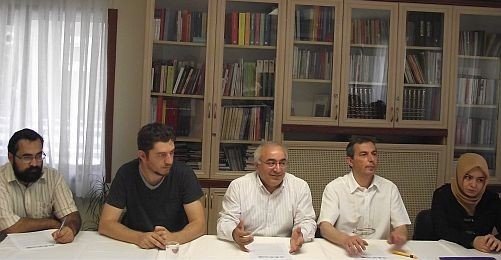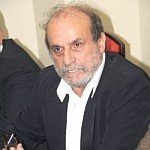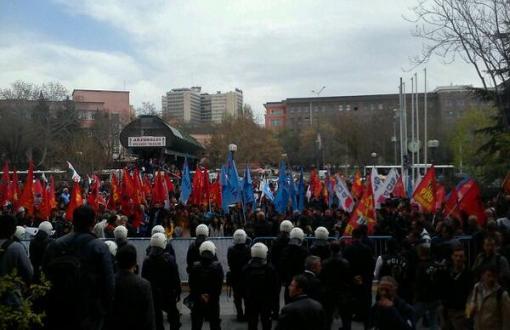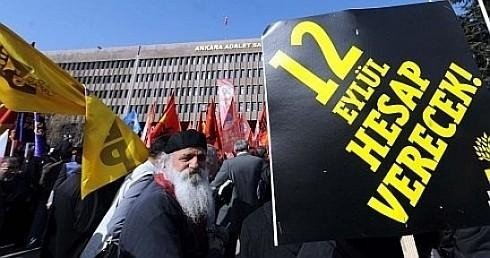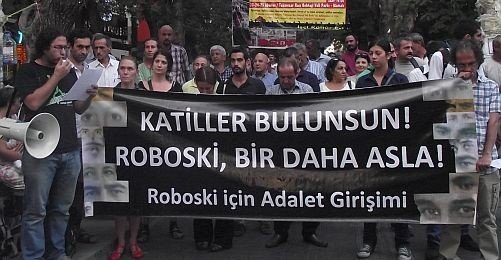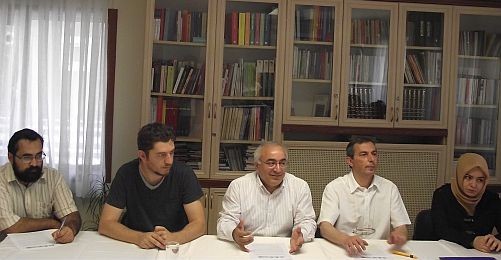
Human rights organizations held a press meeting at 11:00 on June 14 at the general headquarters of the Human Rights Association (IHD) in relation to the Human Rights Commission's decision to pass the new draft law on the Turkish Human Rights Insitution (TIHK) to Parliament without any changes.
The IHD's head Öztürk Türkdoğan, Amnesty International Refugee Coordinator Volkan Görendağ, Turkish Human Rights Foundation's (TIHV) general secretary Metin Bakkalcı and Şerife Gül Arman, the head of the Ankara branch of the Association of Human Rights and Solidarity for Oppressed Peoples (Mazlum-Der) attended the press meeting which was also backed by the Helsinki Citizens' Assembly.
The government engaged in a soliloquy with human rights organizations throughout the entire process of drafting TIHK bill, Öztürk Erdoğan said at the meeting.
"[Authorities] ought take into consideration the views of human rights defenders while working on [issues pertaining to] human rights," he said, adding that the government had ignored their perspective.
"The draft law is null and void in its current form"
The organizations who participated in the meeting are non-plussed in face of the fact that the commission sent the draft law, whose preparation had been underway since 2004, to Parliament without any alterations, Metin Bakkalcı said while reading the press release on behalf of the participants.
The draft law is left null and void in its current form, he said and drew the following conclusions:
*The preparation of the draft law took place without any consideration for such international criteria as participation, comprehensiveness or transparency.
*The draft law features a state-centered approach, rather than an approach centered on individuals and citizens.
*The draft law envisages a government institution like other existing human rights institutions.
*The TIHK is designed to act as a presidential mechanism like other previous human rights institutions whereby the institution would virtually cease to function if its chairperson wishes so.
*The government holds the initiative in the appointment of the institution's members without any respect to their qualifications.
*The draft law does not sufficiently ensure the independence and neutrality of the institution's members, and particularly its financial independence.
*The institution ought to be able to form its own budget to ensure its independence, and a signficant part of its budget must be separated from the general budget through a Parliamentary vote.
*The subjection of the number and composition of the institution's personnel to the 190th Law on Overall Staff and Methods will negatively impact the institution's independence.
*The draft law does not ensure the board members' plurality and participation.
Human rights institutions ought to be autonomous from state institutions and political power in accordance with the spirit and essence of the Paris principles, Bakkalcı added. (SK/HK)





